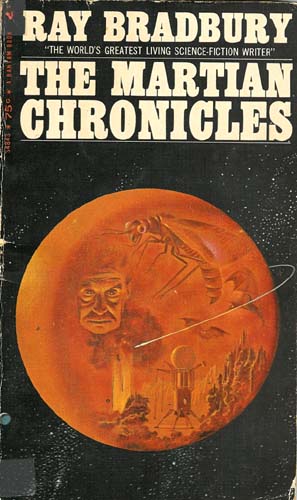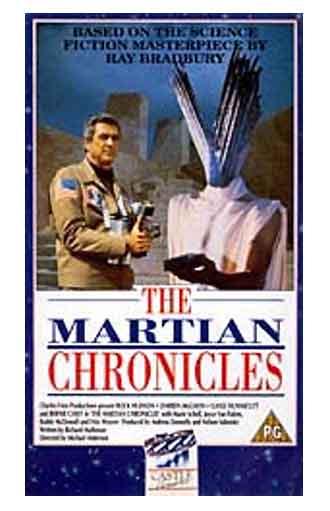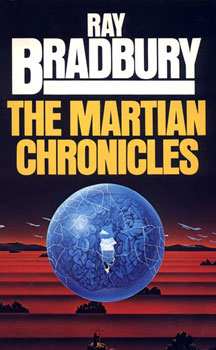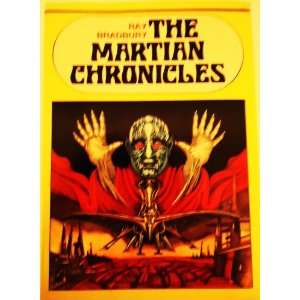Even though advertised as a science fiction writer, Bradbury said he was a fantasist,
Yes, didn't he say F-451 was his only science fiction work? Nice critique of Ylla, Randy.
...and to continue my reading of The Martian Chronicles:
The Third Expedition
This is a strange short story in a way, in the sense of the changes in mood throughout the work. It starts off pretty straight, then moves increasingly into a fantastic and somewhat humorous scenario, and ends up almost in horror territory. I found it was one of those that I wasn't sure about while I was reading it, but having finished it, I really liked it.
-And The Moon be Still as Bright
Straight into another story without a linking piece (or 'vignette' as Randy called them), for a change. This is a good story, well told. The minor characters (crew of the fourth mission to Mars) are typical 1940's bawdy 'spacemen-in-hats' type characters and unappealing - but this is purposeful from Bradbury. The Capt of the mission and the main protagonist, the archaeologist Spender, are rounded, thoughtful and more gentle in their outlook. Spender sees how Man will ruin Mars as he has Earth, and decides something must be done. In its championing of the thoughtful anti-hero and its consideration of ecology and historical value, its reminded me strongly of some of Simak's work.
The Settlers
Another short linking piece - but, again, it's very nicely done.
The Green Morning
I wasn't quite so keen on this. While its longer than a linker, it serves only to move the story-arc on, in the sense of settling and 'terraforming' Mars. It concerns the planting of trees and their rapid growth. It's okay.
The Locusts
A short linker again, this time applying the simile of a horde of silver locusts to the rockets making the journey to Mars. Locust hordes ravish the land, of course, so the term implies the future effect on mankind on the planet. The book was called "The Silver Locusts" of course, originally.
Night Meeting
This short story is... absolutely fantastic. I wont say too much, but I loved it. Pure fantasy, with little (no) explanation of "why", it's all imagery and mood. The dialogue crackles, and the sense of strangeness is without peer. Wont be forgotten in a hurry.
The Shore
A little linking piece about the kind of people attracted to Mars. As ever with these vignettes, the writing is excellent.
...more later.
Incidentally, i imagine it comes across and doesn't need saying, but I'm enjoying this a lot more than I thought I might. Bradbury writes very, very well - and I think perhaps I'd forgotten that.








